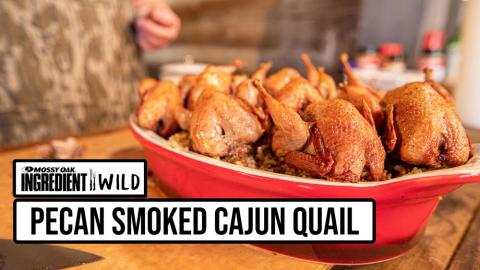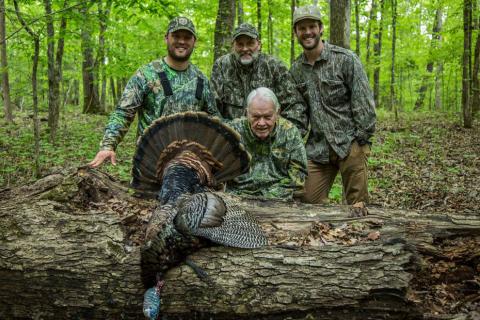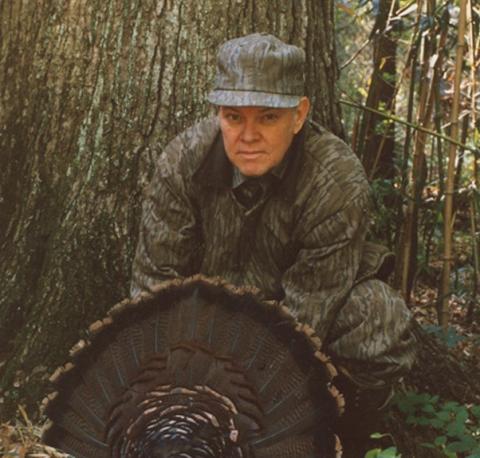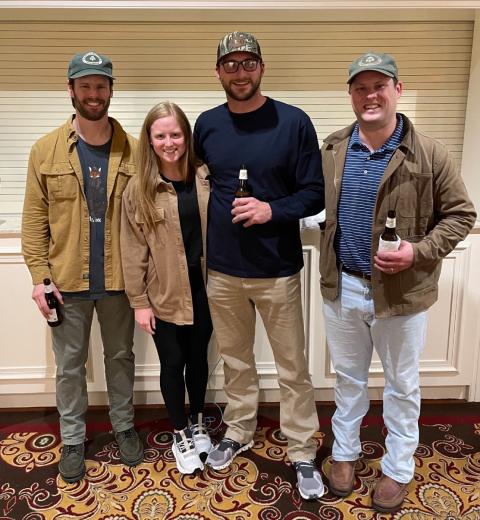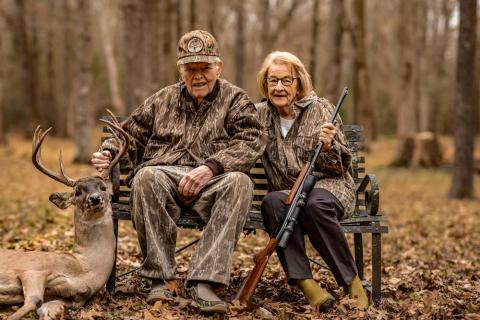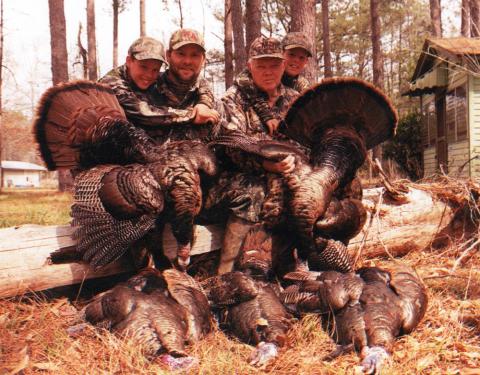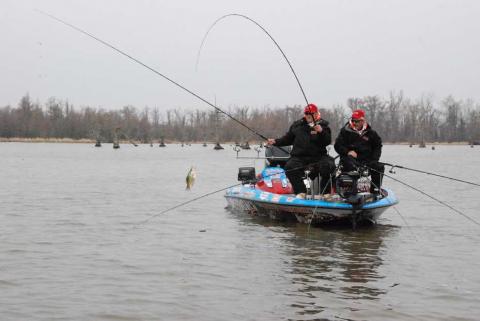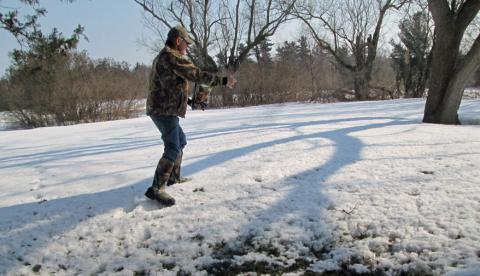provided by John Phillips
The Alabama Adult Mentored Turkey Hunting Program I attended recently had expert help from two Mossy Oak Pros on what equipment turkey hunters needed. Mossy Oak Pro T.R. Pate of Tuscaloosa, Alabama, is the classic example of why there’s a need for an adult mentoring program to learn how to hunt turkeys.
Chris Westen of Gadsden, Alabama, is another Mossy Oak Pro who gave up his Saturday to teach adults the equipment they needed to be successful turkey hunters, and shared his thoughts and beliefs on what helped him become a successful turkey hunter. These Mossy Oak Pros share what they have learned that has helped them become seasoned veteran turkey hunters and learn to help other turkey hunters.
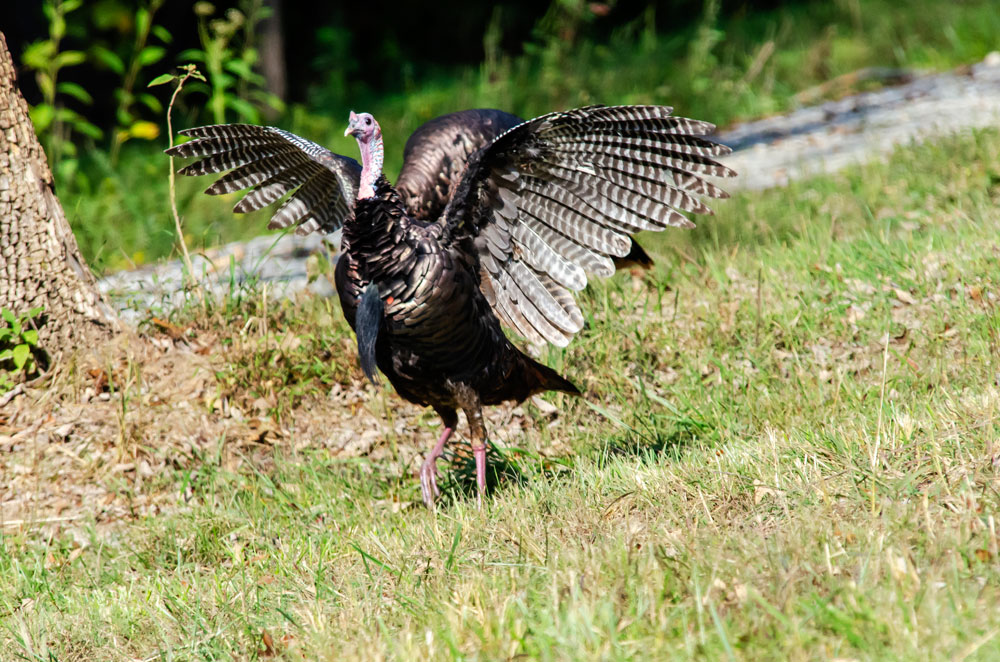
Students at the Adult Mentored Hunting Program for Turkeys asked:
Q: Do turkeys have a sense of smell?
Westen: No, they don’t. If they had a sense of smell, hunters probably never would kill one. They can hear and see much better than we can, so by using insect repellant, you don’t have to worry about spooking turkeys.
Q: In the spring, are the hens and gobblers together, or will the hens and gobblers be separated during the spring?
Westen: During the fall, when some states have fall seasons, the hens usually will be together, and the gobblers generally will group together. In the spring of the year, those two groups come together because the gobblers are looking for the hens to mate, and the hens are searching for gobblers. Gobblers also are trying to protect their territories from other gobblers trying to breed their hens. In the spring of the year, both the hens and the gobblers are much more vocal than they are in the fall. Once again, they’re attempting to find each other and protect their territories. So, they talk more and louder making themselves easier to find.
Q: When you first make a call to a gobbler, do you call loudly and aggressively or quietly and subtly?
T. R. Pate: Remember that when you call to a gobbler, he may have hens with him, and then the hens may answer you as well as the gobbler. Often, especially when you’re calling in the morning, if the gobbler is with the hens and you start calling aggressively, those hens may take the gobbler away from you. They don’t want the gobbler to go to you, instead of staying with them. Remember the social structure of turkeys in the spring. In a flock of turkeys, there is a boss gobbler that’s very territorial-minded. The most important thing he does is keep other gobblers away from his hens. The other boss in the flock is the boss hen, and she’s extremely dominant. She decides where the flock will go, when they’ll go, and when they’ll leave that area.
I suggest that when you first start calling, you call really softly and subtle with purrs, light clucks and soft yelps. That way you don’t appear to be challenging the boss hen. If she doesn’t start bringing the flock to you, you can become more aggressive with your calling with some cutts and cackles. Listen to how she answers you and then give her back the same calls she’s given you. Often, by getting the boss hen mad, she’ll bring the flock to you to try and run you off. As she comes to you, the hens will follow her, and most often the gobbler will be behind the hens and within eyesight of them.
Q: How do you tell the difference in a hen call or a male turkey call?
Chris Westen: Hens never gobble, and when they’re talking, they’ll usually have higher-pitched voices than the gobbler or the jakes (a 1-year-old male turkey with a short beard that’s just learning how to be a grown gobbler) traveling with the flock. Gobblers and jakes tend to have deeper, raspier calls. They may cluck, and the jakes may yelp a little bit, but their yelps will be, again, coarser and deeper than the hen’s call.
Q: What items are important to have with you in your turkey vest that no one has mentioned?
T. R. Pate: When you’re in close and trying to get the hen or gobbler to come to you, there are two things I do. First, I empty my pockets and put everything in my pockets in a little bag that I keep. Then I always know where my truck keys are. The second thing I do is I always make sure I have some peppermint candies in my pocket. Not having peppermints in my pocket caused me to not take a turkey last season. I sometimes have allergies, and often there’s nothing you can do to keep from coughing. However, if you cough, you will spook the turkey. When I start working a gobbler, I put a peppermint candy in my mouth and start sucking to keep me from coughing. On that hunt last year, we got into the woods at black dark. Just as the sky lightened up into what I call gray light, we had a gobbler coming to us - about 30 yards away. I looked at my partner and whispered, “I’ve got to cough.” I looked in every pocket in my vest and couldn’t find any peppermint candy. So, I recommend you always carry peppermint candy or some kind of cough drops or cough syrup to prevent you from coughing. Turkeys can hear really well, and a gobbler knows when you cough that you’re not a hen or a turkey talking to him. I also keep bottled water in my vest.
Another thing I do when I get ready to sit down and call to a turkey is to get pruners out of my turkey vest. I use those pruners to make sure I have some shooting lanes. Then when the turkey steps out into one of those shooting lanes, I won’t have anything that will stop my pellets from going into the head or the neck area of the turkey. I also may use pruners to cut some little limbs or sticks to put in front of me to break up my silhouette Then the turkey can’t identify me when he comes into gun range.
Chris Westen: One other thing that you always want to make sure you have in your turkey vest is some toilet paper. I was hunting with a buddy of mine and we were going to a turkey, and my buddy said, “Stay right here. I’m going to ease over here out of sight.” When he came back, he had one sleeve of his shirt on, and the other sleeve gone because he forgot to bring his toilet paper. A good substitute for toilet paper is the individually packed Wet Ones. They’re small, lightweight, don’t take up much room and can serve the same purpose as toilet paper.
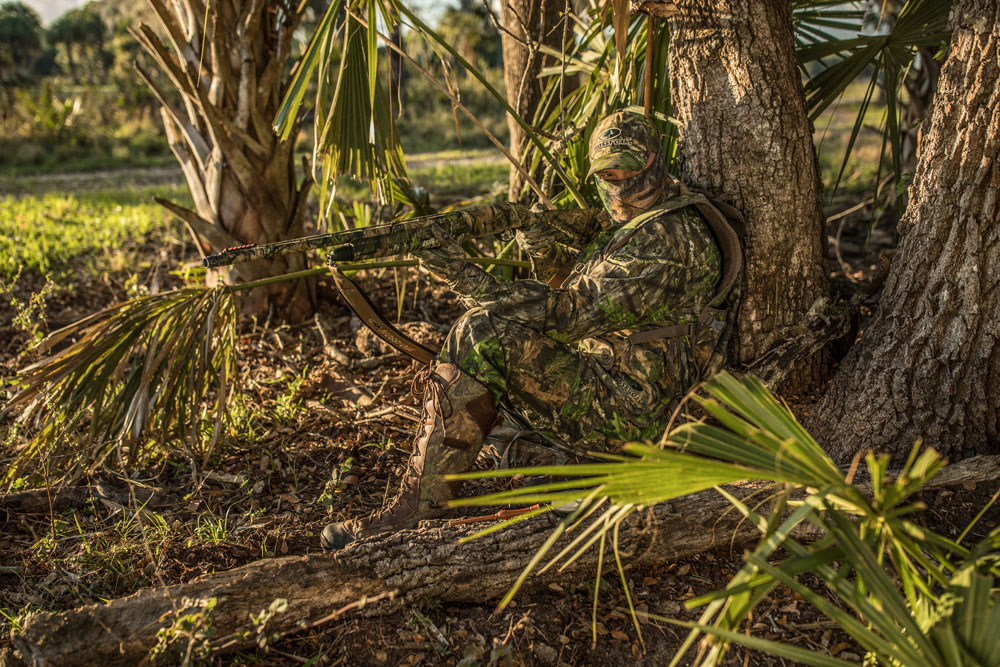
T.R briefly mentioned pruners. Pruners are really important to me, and they will be to you as well. If you hunt turkeys often, sooner or later you’ll make a call, and a turkey is going to gobble less than 100 yards from you. You’ll have to sit down quickly, get still and take the shot. You won’t have time to find a tree bigger than your shoulders to lean up against. There may be briars or bushes where you want to sit, and you can use your pruner or shears to cut those briars, bushes, and/or small sprouts out of the spot where you want to sit. I usually carry my pruners in my hand when moving through the woods, because where I hunt, we’ve got a few blackberry bushes.
My favorite type of pruner is called, EZ Kut. Now I’m not on the pro staff with that company, but there are several reasons why I like this brand. Number one, they are guaranteed for life. Number two, they use a ratcheting system for cutting. These pruners allow you to cut a larger tree or bush that you may not be able to cut with regular pruning shears. The EZ cutters come in different colors - green and pink. I like to use the pink EZ cutters because if you ever set them on the ground, they’re much easier to find than the green ones. Too, seldom will you have another hunter want to borrow your pink EZ cutters.
Another important thing to remember about your equipment, whether you’ve harvested a gobbler or not, is that when you get up from the tree you’ve been sitting against, always take a few seconds, and look around the tree for any of your gear you may have left there. You may take your hat, your face mask or your gloves off. You may have set down your pot calls or box calls. If you don’t have your binoculars on a bow sling, forgetting about them is easy - if you shoot a turkey and run to pick him up. Oftentimes, you’ll only be sitting next to a tree for 5 to 10 minutes before you either spook the turkey or have the opportunity to take him. However, on some occasions, especially with a hung-up turkey, you may be sitting next to that tree for two hours.
One of the number-one keys to having a successful turkey hunt and going with a gobbler is that you absolutely have to be comfortable when you sit down to call a turkey. If you start fidgeting, or you have to move because something under you is creating a problem, you will spook the turkey.
















